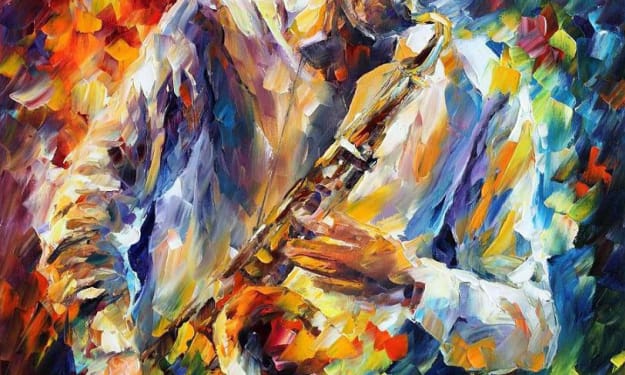Celebrating Eid-ul-Adha: A Time of Sacrifice, Reflection, and Community
Eid-ul-Adha

Eid-ul-Adha, also known as the "Festival of Sacrifice," is one of the most significant religious holidays in Islam. It commemorates the willingness of Prophet Ibrahim (Abraham) to sacrifice his son as an act of obedience to God. This festival not only emphasizes faith and devotion but also highlights themes of sacrifice, charity, and community spirit. In this blog post, we will explore the rich traditions and customs associated with Eid-ul-Adha, the significance of the sacrifice, the role of charity, and how communities come together to celebrate this auspicious occasion.
The Origins and Significance of Eid-ul-Adha
Eid-ul-Adha, celebrated on the 10th day of Dhu al-Hijjah, the last month of the Islamic lunar calendar, has deep-rooted significance in Islamic tradition. The story behind the festival is derived from the Quran, where it is narrated that Prophet Ibrahim (Abraham) had a dream in which he was commanded by God to sacrifice his son, Ismail. Obedient to God’s command, Ibrahim prepared to carry out the sacrifice. However, at the last moment, God replaced Ismail with a ram, signifying that Ibrahim's willingness to obey was the true test of faith.
The Rituals of Eid-ul-Adha
The rituals of Eid-ul-Adha are deeply symbolic and are observed with great reverence by Muslims around the world. The day begins with a special prayer known as the Salat al-Eid, performed in congregation at mosques or open fields. This prayer is a manifestation of unity and collective devotion.
Following the prayer, the act of Qurbani, or sacrifice, is performed. Muslims who can afford it sacrifice an animal, usually a goat, sheep, cow, or camel, to honor Ibrahim’s readiness to sacrifice his son. The meat from the sacrifice is then divided into three parts: one-third for the family, one-third for relatives and friends, and one-third for the less fortunate. This practice underscores the importance of sharing and caring for those in need.
The Spirit of Charity
Charity, or Zakat, is a fundamental aspect of Islam and is especially emphasized during Eid-ul-Adha. The act of giving ensures that the joy of the festival is shared with those who are less privileged. Muslims are encouraged to give not only meat but also money, clothes, and other necessities to help the needy. This charitable spirit fosters a sense of community and solidarity, reinforcing the belief that wealth should circulate to benefit all members of society.
Organizations and individuals often set up donation drives and charitable events to maximize their impact. By participating in these activities, Muslims demonstrate their commitment to social welfare and uphold the values of compassion and generosity that are central to their faith.
Community and Family Celebrations
Eid-ul-Adha is also a time for family and community gatherings. After the sacrificial rituals, families come together to enjoy festive meals, exchange gifts, and celebrate with joy and gratitude. Traditional dishes, such as biryani, kebabs, and sweets, are prepared and shared among family and friends.
In many communities, public celebrations are organized, including fairs, parades, and cultural performances. These events provide an opportunity for people to come together, irrespective of their socio-economic status, to celebrate and strengthen communal bonds. The communal aspect of Eid-ul-Adha emphasizes the importance of unity and collective happiness.
Reflection and Spiritual Growth
Beyond the physical rituals and festivities, Eid-ul-Adha is a time for personal reflection and spiritual growth. It is a moment for Muslims to contemplate their faith, evaluate their actions, and reaffirm their commitment to God's will. The story of Ibrahim serves as a powerful reminder of the virtues of obedience, patience, and unwavering faith.
Muslims are encouraged to engage in additional prayers, recitation of the Quran, and acts of worship during the days leading up to and following Eid-ul-Adha. This period of heightened spirituality offers an opportunity to seek forgiveness, make amends, and renew one's dedication to living a life in accordance with Islamic principles.
Conclusion
Eid-ul-Adha is a profound celebration that encompasses sacrifice, charity, community, and spiritual reflection. It is a time for Muslims to come together, share their blessings, and reaffirm their faith and devotion. As we celebrate this auspicious occasion, let us remember the true essence of Eid-ul-Adha and strive to embody its values in our daily lives.
We invite you to click on the hyperlink to explore our special Eid-ul-Adha offer and experience the joy and blessings of this beautiful festival in a meaningful way.
About the Creator
Arif Ali
Arif Ali is a passionate writer who explores personal and societal themes through engaging storytelling. Follow his journey on Vocal as he shares insightful and thought-provoking narratives that resonate deeply with readers.
Enjoyed the story? Support the Creator.
Subscribe for free to receive all their stories in your feed. You could also pledge your support or give them a one-off tip, letting them know you appreciate their work.






Comments (1)
great writing.. loved it